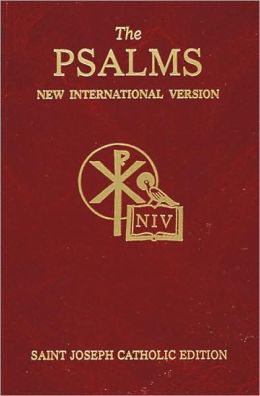subllibrm said:
Not one of which is used by the Catholic church.
Are you certain about that??
USCCB Approved Translations of the Sacred Scriptures for Private Use and Study by Catholics
1983 - Present
The 1983 Code of Canon Law entrusts to the Apostolic See and the episcopal conferences the authority to approve translations of the Sacred Scriptures in the Latin Catholic Church (c. 825, §1). Prior to 1983, Scriptural translations could be approved by the Apostolic See or by a local ordinary within a diocese.
What follows is a complete list of the translations of the Sacred Scriptures that have received the approval of the United States Conference of Catholic Bishops since 1983.
In addition to the translations listed below, any translation of the Sacred Scriptures that has received proper ecclesiastical approval ‒ namely, by the Apostolic See or a local ordinary prior to 1983, or by the Apostolic See or an episcopal conference following 1983 ‒ may be used by the Catholic faithful for private prayer and study.
Books of the New Testament, Alba House
Contemporary English Version - New Testament, First Edition, American Bible Society
Contemporary English Version - Book of Psalms, American Bible Society
Contemporary English Version - Book of Proverbs, American Bible Society
The Grail Psalter (Inclusive Language Version), G.I.A. Publications
New American Bible, Revised Edition (NABRE)
New Revised Standard Version, Catholic Edition, National Council of Churches
The Psalms, Alba House
The Psalms (
New International Version) - St. Joseph Catholic Edition, Catholic Book Publishing Company
The Psalms - St. Joseph New Catholic Version, Catholic Book Publishing Company
Revised Psalms of the New American Bible (1991)
So You May Believe, A Translation of the Four Gospels, Alba House
Today's English Version, Second Edition, American Bible Society
Translation for Early Youth, A Translation of the New Testament for Children, Contemporary English Version, American Bible Society



